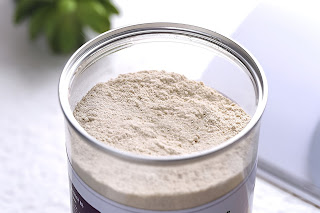Water-soluble dietary fiber and its application in food
Overview of water-soluble dietary fiber
Dietary fiber (DF) is usually considered to be a type of fiber that cannot be digested by human digestive enzymes. It is mainly composed of edible plant cell wall residues (cellulose, hemicellulose, lignin, etc.) and related substances associated with it. composed of compounds. According to its solubility, it can be divided into two types: water-soluble dietary fiber and insoluble dietary fiber.
Common water-soluble dietary fibers mainly include: inulin, glucan, resistant starch, chitosan, oat beta-glucan, guar gum, sodium alginate, fungal polysaccharide, etc. Common foods include barley and soybeans. Foods such as greens, carrots, citrus, flax, oats and oat bran are rich in water-soluble fiber.
In comparison, water-soluble dietary fiber has good processing properties and better physiological functions. In recent years, it has been used as a thickening agent, expanding agent, formulation aid and filler in food processing, and is widely used in low-energy foods. The production and development of food and functional foods, and water-based dietary fiber-related foods have huge room for development and broad market prospects.
Physicochemical properties and functions of water-soluble dietary fiber
1. High water retention, high expansion and function
There are many hydrophilic genes in the structure of water-soluble dietary fiber, which has strong water absorption, high water retention and high swelling property. It can increase stool volume and defecation speed, reduce pressure in the rectum and urinary system, relieve symptoms of urinary system diseases such as cystitis, bladder stones, and kidney stones, and can quickly excrete toxins from the body to prevent constipation and rectal cancer.
The high water retention and high expansion properties of dietary fiber delay gastric emptying, making people feel full in the stomach and reducing food intake, which is beneficial to preventing obesity and losing weight.
2. Adsorption and boiling effect and function
There are many active genes on the surface of water-soluble dietary fiber, which can combine and adsorb organic molecules such as cholesterol and bile acids, inhibit the increase in total cholesterol concentration, reduce the synthesis and absorption of human cholesterol and salts, and reduce cholesterol in human serum and liver, thus It can prevent coronary arteriosclerosis and prevent cardiovascular diseases.




评论
发表评论